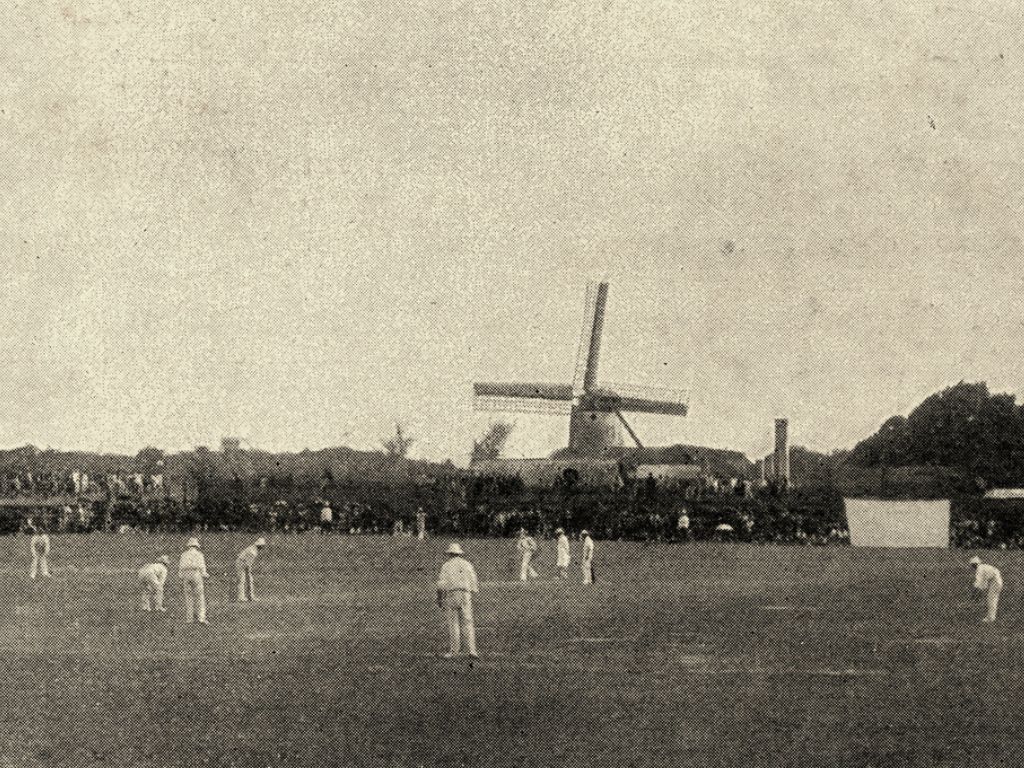- Wednesday, May 07, 2025
According to historian Michael Collins, racism forced after the second Great War many new Windrush arrivals — mainly black Caribbean males seeking manual jobs — to form their own cricket clubs

By: Shubham Ghosh
IN the 1950s, cricket was a sport that was played extensively in Britain. Be it in cities, towns and villages or in professional fields or as a social activity, the game had a wide popularity. But it also had a deep social impact as it emerged as a universal cultural pastime in the Caribbean that spoke English.
Cricket had played a key role in Britain’s cultural imperialism and in the colonial Caribbean, clubs playing the game were segregated on the basis of class and race, wrote Michael Collins, an associate professor of Modern and Contemporary British History, UCL, for The Wire. He said an emphasis on respecting the rules, “fair play” and sporting behaviour enhanced the sense of white English prestige.
According to Collins, racism forced after the second Great War many new Windrush arrivals — mainly black Caribbean males seeking manual jobs — to form their own cricket clubs. One such club is Carnegie CC, which was set up in 1955 to cater to Caribbean cricketers in and around the Brixton area and is still active.
Cricket held a particular importance for the Windrush generation, something that Collins’s forthcoming book ‘Windrush Cricket: Caribbean Migration and The Remaking of Post-War England’ speaks about.
The game helped some Caribbean cricketers to achieve fame despite widespread racism, he wrote. Some of them were feted by and also found favour with the political establishment. Collins cited the example of Learie Constantine (1901-71) who played 18 Tests and became the first black person to sit in the House of Lords in the late 1960s.
Mention was also made about Bertie Clarke (1918-93), who had played for the West Indies before the war and was a part of the glamorous networks of the game at the BBC. There, the former cricketer, who had played three Tests, worked with the radio host and the first black woman hired by the broadcaster — Una Marson — and other new arrivals from the Caribbean on the radio programme called London Calling.
“By the late 1960s and into the 1970s, there was a rich ecosystem of Caribbean cricket across Britain. Black cricket clubs were widely formed across English cities, starting with Leeds Caribbean (set up in 1948) and swiftly followed by others such as Sheffield Caribbeans, Bristol West Indians and the West Indian Cricket and Sports Club in Manchester,” Collins wrote.
“The clubs and competitions were created by black people themselves, and were a significant bridge between England and “home” in the Caribbean – making cricket an important part of the black Atlantic cultural exchange.”
Collins also made a mention about London Transport, which was a major employer in post-war London, and often emphasised on sport and recreation facilities in recruitment materials. Pamphlets informed prospective employees that along with their day jobs on the buses and London Underground, migrant workers would have abundant opportunities to play cricket in the capital city. The trend saw London Transport becoming a major focus for the development of Caribbean cricket in England by the end 1950s.
“Some of those who arrived saw themselves as temporary visitors, yet travelled back to the Caribbean to play cricket as Londoners. One example is the highly successful Central Road Services (CRS) team, named after a bus garage in south London,” Collins wrote.
According to Chris Hope, a bus conductor recruited in Barbados:
Names such as Devon Malcolm, Philip DeFreitas and David Lawrence were successful in even representing England in international cricket, thanks to their hard work. However, their successes often provoked a racist backlash, Collins wrote, “which pointed to deep fault lines opening up in terms of what it meant to be English in a postcolonial world”.